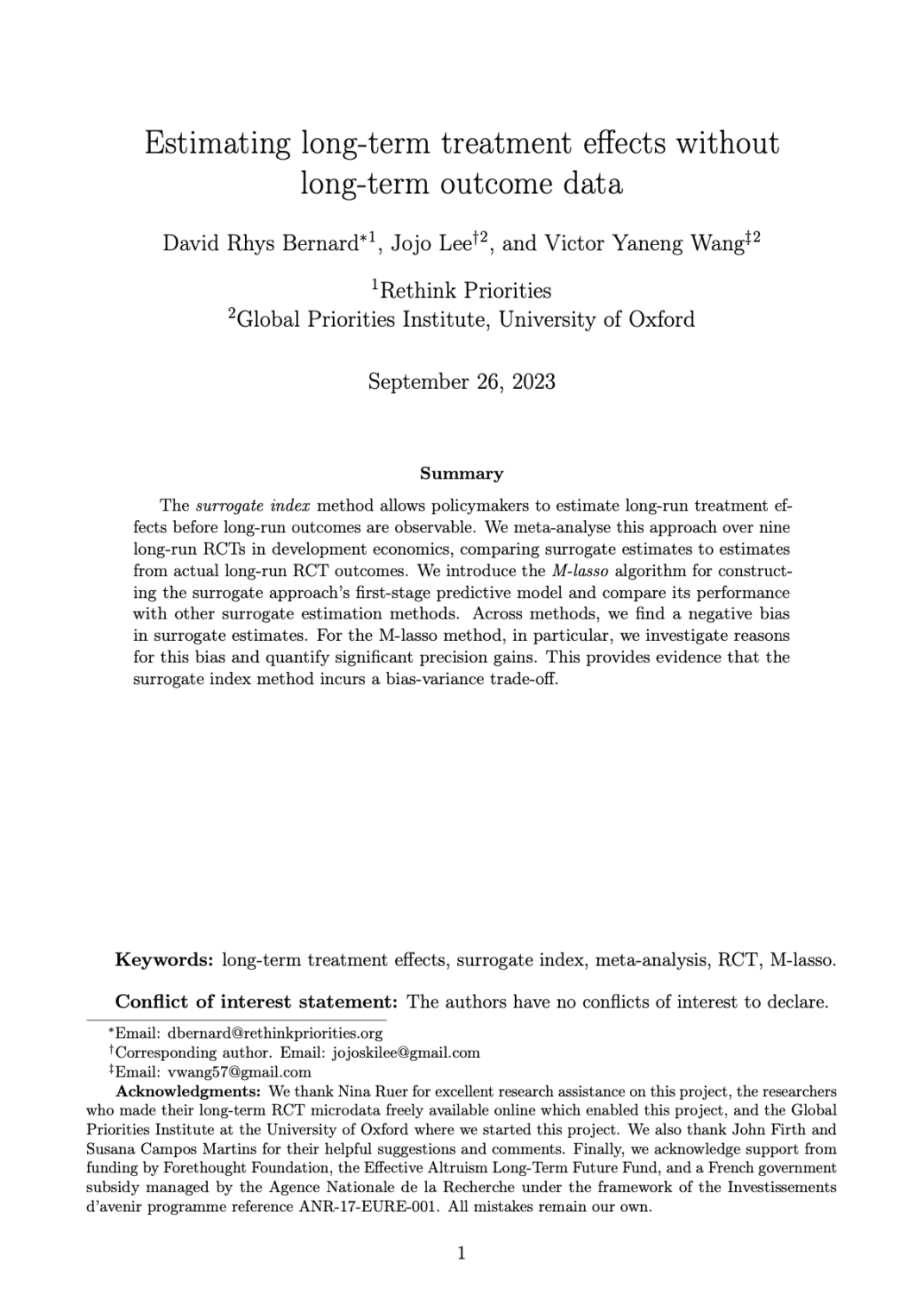Estimating long-term treatment effects without long-term outcome data
David Rhys Bernard (Rethink Priorities), Jojo Lee and Victor Yaneng Wang (Global Priorities Institute, University of Oxford)
GPI Working Paper No. 13-2023
The surrogate index method allows policymakers to estimate long-run treatment effects before long-run outcomes are observable. We meta-analyse this approach over nine long-run RCTs in development economics, comparing surrogate estimates to estimates from actual long-run RCT outcomes. We introduce the M-lasso algorithm for constructing the surrogate approach’s first-stage predictive model and compare its performance with other surrogate estimation methods. Across methods, we find a negative bias in surrogate estimates. For the M-lasso method, in particular, we investigate reasons for this bias and quantify significant precision gains. This provides evidence that the surrogate index method incurs a bias-variance trade-off.
Other working papers
Social Beneficence – Jacob Barrett (Global Priorities Institute, University of Oxford)
A background assumption in much contemporary political philosophy is that justice is the first virtue of social institutions, taking priority over other values such as beneficence. This assumption is typically treated as a methodological starting point, rather than as following from any particular moral or political theory. In this paper, I challenge this assumption.
‘The only ethical argument for positive 𝛿’? – Andreas Mogensen (Global Priorities Institute, Oxford University)
I consider whether a positive rate of pure intergenerational time preference is justifiable in terms of agent-relative moral reasons relating to partiality between generations, an idea I call discounting for kinship. I respond to Parfit’s objections to discounting for kinship, but then highlight a number of apparent limitations of this…
Evolutionary debunking and value alignment – Michael T. Dale (Hampden-Sydney College) and Bradford Saad (Global Priorities Institute, University of Oxford)
This paper examines the bearing of evolutionary debunking arguments—which use the evolutionary origins of values to challenge their epistemic credentials—on the alignment problem, i.e. the problem of ensuring that highly capable AI systems are properly aligned with values. Since evolutionary debunking arguments are among the best empirically-motivated arguments that recommend changes in values, it is unsurprising that they are relevant to the alignment problem. However, how evolutionary debunking arguments…

